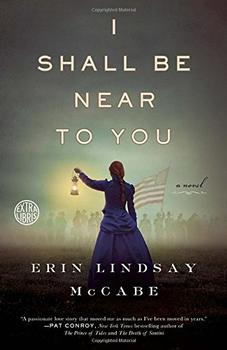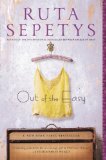Summary | Excerpt | Reviews | Beyond the book | Read-Alikes | Genres & Themes | Author Bio

What the River Washed Away begins with Constance Laing, the former Arletta Lilith Johnson, living in Africa. Arletta was born in 1901 near Brouillette, Louisiana, but has been living in Africa for 50 years. How did Africa become home for Constance? And how did she go from Arletta Lilith Johnson to Constance Laing?
Debut novelist Muriel Mharie Macleod answers these questions as she flawlessly writes in the voice of Arletta, leading us into her life as a young girl in this voodoo-infused bayou of rural early 20th century Louisiana. Here, Arletta is repeatedly raped by her mother's acquaintance, Mr. McIntyre, who runs the bank where Mambo, as Arletta calls her imperious, indifferent mother, works as a cleaning woman. Mambo heads out on the town night after night, dancing, partying, spending time with many men, leaving Arletta to McIntyre's horrific advances; and those of the "tall and blond, and podgy like a fat pig" Mr. Seymour, who is even worse and "smells real bad of stale baccy and strong liquor."
Time passes quickly in this novel, and it crisply represents Arletta's whirlwind life. Arletta experiences much that is new: new faces, such as Safi, a newfound friend who lives nearby; new ideas, in school and in her life; and even new strength, which comes from Nellie, an invisible ghost who Arletta first hears along the banks of Sugarsookie Creek. Nellie tells Arletta that strength to overcome her past and find her way into a better future will come, and Arletta proves this true. Despite Mambo's expertise in voodoo, and a ceremony that Arletta shakily, yet vividly, describes, she doesn't carry forth her family's traditions. It doesn't matter that Mambo's mother practiced voodoo before her and that she is expected to follow in her footsteps. Arletta wants to go to school. She wants to learn. She wants to form her own life and become her own woman, shackled to nobody and freed from her frightening predicament.
What the River Washed Away is strength incarnate. Arletta tries to tell her mother that Mr. McIntyre rapes her, but Mambo won't have any of it. She doesn't believe it, worried that if word gets out, both she and Arletta will be lynched, because in this part of the country, in the early twentieth century, there are no civil rights. They have no rights. There is no equality for them. Mambo wants Arletta to do what she has to do without bothering the status quo. Yet Arletta rises above that. Even though Mambo kicks her out at 14 years old, she makes a new life for herself in nearby Marksville, moving into a boarding house with Safi, both of them finding work at a cotton mill. It's hard, physically risky work, but it's a new life. It's a chance for something better. And there's more education in night school classes, and the wisdom of Mrs. Dolly Archer-Laing, her landlady, and the friendship of Errol, the cook of the house. The ultimate message that Macleod imparts is that no matter how hard your life gets, no matter who might stand in your way, no matter what you have to face day after day, there's still a chance to rise above it all and be who you want to be. Arletta rises. It's a powerful message.
Macleod isn't only adept at adopting Arletta's voice and writing in the language of the South. She also anticipates what the reader might think is predictable in the course of her story and chooses surprising plot turns instead. And the poetry of her language. Oh, the moving poetry. It's soulful, measured, and as great writing does, it makes you see the world differently. Macelod writes with utter, yet affecting, simplicity when Arletta faces making her own life: "I just never figured on starting out on my own so soon." The rush of the cotton mill: "…and all of them busy working, shouting and moving about like taking it easy gone out of style." And the burbling of Sugarsookie Creek: "I find myself sitting on the bank staring at silver moon-ripples flowing to the ocean, makes me feel kinda peaceful."
There should be eager anticipation over what Macleod will write next. Impatience too. But at the end of What the River Washed Away, there is calm understanding. We have reached the end of Arletta's dynamic journey. Yet we need no more than this right now. Her story must settle, and become part of us, with Arletta's courage and fortitude. However much time Macelod needs for her next novel, the wait will likely be worth it. She is one new novelist to watch.
![]() This review
first ran in the September 18, 2013
issue of BookBrowse Recommends.
This review
first ran in the September 18, 2013
issue of BookBrowse Recommends.

If you liked What the River Washed Away, try these:

by Erin Lindsay McCabe
Published 2014
I Shall Be Near To You is the intimate story of the drama of marriage, one woman's amazing exploits, and the tender love story that can unfold when two partners face life's challenges side by side.

by Ruta Sepetys
Published 2014
With characters as captivating as those in her internationally bestselling novel Between Shades of Gray, Ruta Sepetys skillfully creates a rich story of secrets, lies, and the haunting reminder that decisions can shape our destiny.
Your guide toexceptional books
BookBrowse seeks out and recommends the best in contemporary fiction and nonfiction—books that not only engage and entertain but also deepen our understanding of ourselves and the world around us.